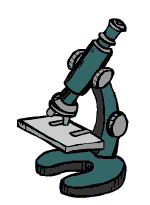HUMAN CELLULAR AGING
EXTENDING YOUR LEGACY

WHEN
In 1961,Hayflick and Moorhead described cellular aging for the first time. They discovered that human cells do not divide indefinitely but have a limit of replication.This is when they enter cellular senescence, which is considered an alternative to apoptosis. When the cell does not do either, it becomes cancerous.
Why Do We Age?
There are two well known theories which explain why we live as long as we do. in the first theory, it states that our genes are what determine how long we live. The sqeuence found within one's family is usually the most
still working on changing that
rational. In today's world, scientists are
particular gene so an organism could live as long as it wished.

The second theory is largely related to time. Scientists suspect that over time our body and DNA get damaged to the point where they can no longer function properly. These small changes in our DNA end up accumulating which in the end, leads to mortality. Our bodies also sustain damage during our lifetimes such as stress and too much exposure to radiation.
If humans could minimize the amount of damage done over time, it would allow them to live a longer life. The reality is found to be a combination of these two theories, where genes could be changed and they could sustain less damage. This may not necessarily lead to immortal humans, but it sure can elongate a person's life by a significant amount of years.

